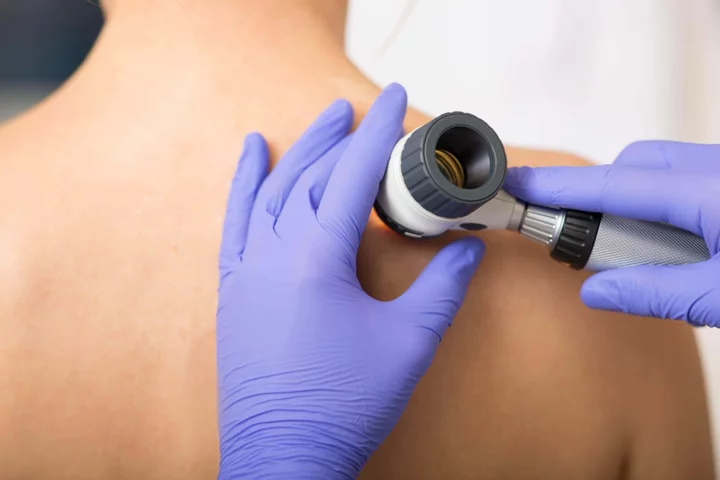
Skin cancer cases reach record high – how to spot the signs
Skin cancer diagnoses in the UK across all ages, have reached a record high of 17,500 every year, according to Cancer Research. This growth shows no sign of stopping. Melanoma skin cancer cases could increase by around 50% over the next 20 years, hitting a record 26,500 a year by 2040, the charity says. So, what should we be looking out for? What are the visible signs? “Visible signs of skin cancer include lumps or patches on the skin, changes in the appearance of moles, or the development of new growths on the skin,” says Catherine Borysiewicz, a dermatologist at King Edward VII’s Hospital, London. “Look for any moles or spots that exhibit irregular borders, uneven colouration, or are larger than the size of a pencil eraser. Additionally, any sores that do not heal or lesions that bleed, itch, or change in size should be monitored closely.” You may be worried a rash could indicate skin cancer, but they are normally safe. “Rashes can be caused by numerous factors, including allergies, infections, autoimmune diseases, or contact with irritants. “Some non-cancerous skin conditions may mimic the appearance of certain types of skin cancer, such as eczema or psoriasis. A dermatologist can help differentiate between these conditions based on a thorough examination and, if necessary, additional diagnostic tests,” she explains. Should I be on the lookout more after sunburn? “Sunburn itself is a sign of skin damage caused by excessive exposure to UV radiation. While it does not directly indicate skin cancer, sunburn can increase your risk of developing skin cancer in the future. Therefore, it is important to be more vigilant and use sun protection measures, to minimise the risk of developing skin cancer later on,” says Borysiewicz. Would I be in pain? “Persistent pain in a skin lesion or an area of the skin can be a potential indicator of skin cancer. Pain associated with skin cancer is typically not the initial symptom, but it can occur as the cancer progresses. If you experience unexplained and prolonged pain in a specific skin area, especially if accompanied by other suspicious signs, it is advisable to consult a dermatologist for further evaluation,” says Borysiewicz. Will I feel unwell? “Skin cancer is primarily diagnosed based on visible changes in the skin. However, it’s important to note that advanced stages of skin cancer may cause systemic symptoms, such as fatigue or weight loss,” she explains. When should I get something checked? “It is essential to get any skin concern checked by a dermatologist if you notice any suspicious changes in your skin. This includes new or changing moles, unusual growths, sores that don’t heal, or any other worrisome skin changes,” she stresses. “Early detection is crucial in successfully treating skin cancer, so it’s better to be cautious and have any concerning skin abnormalities evaluated by a doctor as soon as possible,” Borysiewicz explains. .
2023-07-07 16:54

String of Global Heat Records Raises Alarm on Climate Change
Global temperatures have hit records for three days this week, raising concerns over the impact of extreme heat
2023-07-07 16:50
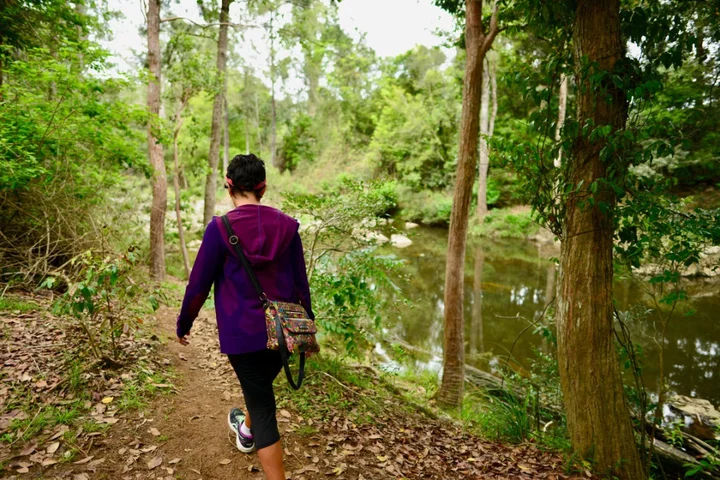
Why it’s so good to do activities alone this summer
I do a lot of activities alone. Not because I don’t have any friends or family who love me and share similar interests, but I’ve grown to enjoy my own company and stepping outside of my comfort zone. The first time I took the plunge was when I went to the Apollo Theatre in Victoria, London, to watch the iconic Wicked The Musical alone for my 21st birthday. I hated it and silently cried throughout the interval, watching people converse with their loved ones. But it taught me several lessons and I have since stopped thinking twice about going anywhere alone. Now, you’d happily find me at the cinema, gig, concert, restaurant, on a solo travel trip and yes, even the theatre, alone. For those thinking about it, but still need convincing, here are some of the reasons why you should try doing activities alone this summer. Increased independence and confidence Apart from learning to appreciate the peace that comes from silence, you could also start learning a new skill or invest in a talent, such as playing an instrument or knitting. “Trying out activities alone can boost your independence and confidence,” said Natalie Viglione, a life, business and spiritual coach who runs Team Gu and the Disrupt Now Program, which helps people and their businesses. “It’s an opportunity to rely on your own judgment and decision-making skills, which can make you feel empowered and more self-assured.” You learn more about yourself It may be easier to coast through life, but taking the time to be self-reflective to learn more about who you are – your likes, dislikes, values and how you are in uncomfortable situations – will provide you with great insight, direction and depth. You might discover new things and experience personal growth along the way too. “The lessons are endless, because the opportunities are too,” said Radha Vyas, CEO and co-founder of group adventure travel company Flash Pack. “Outside of the safety net of your friends and family, you are more open to meeting others, making new friends and creating new connections. The fear of loneliness dissipates almost immediately. Taking on new adventures and experiencing new things [like] solo travelling is life-affirming, and also brings with it a triumphant sense of achievement.” Making new friends Making new friends as an adult isn’t straightforward. But doing activities alone will provide you with countless opportunities to meet people who have similar interests as you. Using solo travelling as an example, Vyas said: “People often feel nervous to travel alone for fear they will be lonely or feel isolated. I’ve travelled solo a lot and have met others at every stage of my journey. “In fact, it’s often hard to have time alone. I think that’s the beauty of travelling solo – you are more open to meeting others and, as a result, wonderful and interesting new friendships form.” Reduced stress and improved mental health There’s a difference between doing activities alone and being lonely. For Lowri-Dowthwaite Walsh, a senior lecturer in psychological interventions at University of Central Lancashire, some people may be more reluctant to spend time alone, because we are often told that we should be with other people. “We are social creatures and tend to crave companionship. We are also aware of negative messages and stereotypes around solitude,” said Walsh. “Some people feel a sense of loneliness when they are alone and may not spend a great deal of time in their own company. Introverted individuals may be more used to being alone than extroverts.” But Walsh goes on to explain that throughout the centuries many philosophers, artists, poets and spiritual leaders have advocated for solitude. “Spending time alone enables you to get to know yourself better. Being alone with one’s thoughts and feelings deepens the relationship with oneself. It also allows for more spiritual and philosophical reflection. Being alone in nature has also been shown to improve wellbeing.” Walsh recommends journaling as a good reflective activity that can be done alone with plenty of time and space. Going for a walk in nature, doing some crafting or painting are also valuable ways to spend time by yourself. Read More Charity boss speaks out over ‘traumatic’ encounter with royal aide Ukraine war’s heaviest fight rages in east - follow live How to make your summer tan last longer Why do I get sick when I go on holiday? As Katie Boulter takes Wimbledon by storm, we look at her best on-court fashion so far
2023-07-07 15:54
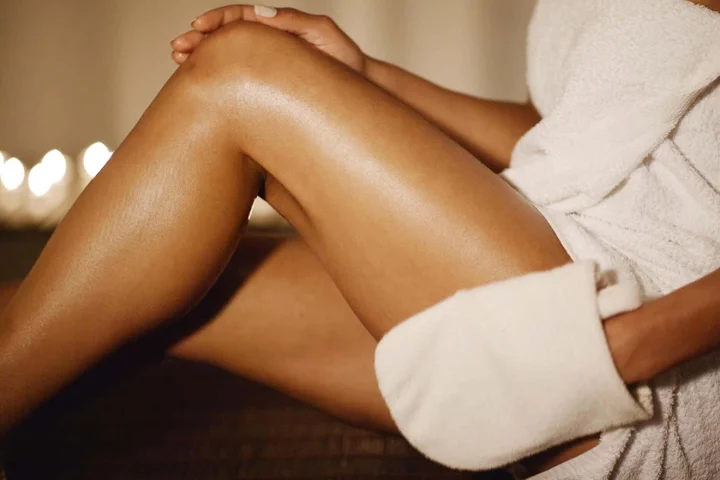
How to make your summer tan last longer
It’s one of the golden rules of summer: everyone feels better with a tan. Whether your tan is from soaking up the rays or from a bottle, you’ll likely want it to linger as long as possible. Luckily, there are plenty of things you can do – before and after getting a tan – to prolong your glow. Of course, if your tan is from the sun, it’s important to be careful with UV rays. “Sunscreen is your best friend when it comes to safeguarding your skin from harmful UV rays. Choose a broad-spectrum sunscreen with an SPF of 40 or higher and apply it generously to all exposed areas of your body. Reapply every two hours, especially after swimming or sweating,” advises skincare formulator and founder of Skin Masterclass, Cigdem Kemal Yilmaz. “Seek shade during peak hours, typically between 12pm and 3pm, and wear protective clothing such as hats and sunglasses.” Real or fake, how can you make your summer tan last longer? Prep your skin beforehand The golden rule of tanning? “Exfoliate before you tan,” says Rachael Robertson, skincare specialist and founder of Bedew Skin. “This will remove the dead skin cells on the outermost layer of the skin giving you a fresh base to work with. Remember that the skin sheds naturally so if you do this before you tan, those outermost cells will stick around longer and so will your tan.” It’s then important to cleanse and moisturise your skin. Robertson says: “Wash thoroughly with your favourite body wash (look for products that are moisturising as this will help hold your tan) when you jump out [the shower] apply moisturiser to slightly damp skin, paying close attention to the backs of the arms, elbows, feet, knees and hands. “If you usually use a body oil, skip it if you are preparing to tan as this can break it down quicker if it’s fake, and may cause burning if it’s real.” Kimberley Medd, head of clinic at Face the Future, recommends moisturising at least 24 hours before applying fake tan. “Any closer, and you can affect the efficacy of the tan as the moisturiser will act as a skin barrier, meaning your tanning product may find it harder to penetrate the skin,” she says. Aveeno Skin Renewal Gentle Body Scrub, £9.99, Boots I Am Proud Sami The Duck Scalp & Body Brush, £8.95 Moisturise afterwards “The best ingredients to prolong your tan are those that moisturise and hydrate, such as squalene, shea butter, vitamin E and glycerin,” says Robertson. Yilmaz agrees with the idea of keeping your skin as hydrated as possible post-tan. “Regularly moisturising your body and face helps maintain optimal skin health and prevents dryness, flakiness, and premature ageing,” she says. “I suggest going for moisturisers that contain ingredients like niacinamide, hyaluronic acid and glycerin, which help retain moisture and provide a plump, radiant appearance.” If you have been in the sun, hydration is even more crucial, Yilmaz says: “After a day of sun exposure, treat your skin with a hydrating after-sun lotion with aloe vera and allantoin to sooth the skin and replenish lost moisture.” And if you want to cheat the system a bit, Robertson adds: “A great tip is to top your tan up with a gradual tanning moisturiser each day so you get the benefits of the moisturising ingredients and a sneaky top-up.” Perricone MD High Potency Hyaluronic Intensive Body Therapy, £51 Arran Apothecary Aloe Vera Body Lotion, £14.50 Bondi Sands Skin Illuminator Gradual Tanning Lotion, £13.99 Don’t strip away your tan “To extend the lifespan of your summer tan, keep your skin moisturised using a lightweight, non-greasy lotion,” says Yilmaz. “Avoid prolonged exposure to chlorinated water as it can fade your tan faster.” If you’ve fake tanned, Medd says: “You should wait three to four days after tan application before you exfoliate to avoid the tan becoming patchy or fading. Exfoliating is a key part of keeping an even, buildable tan as you’re able to remove the dead skin cells for reapplication.” Consider your diet Did you know a healthy diet and drinking plenty of water could help prolong your summer glow? “A balanced diet rich in antioxidants, vitamins, and minerals promotes skin health and radiance,” Yilmaz notes. “I suggest incorporating fruits and vegetables like berries, tomatoes, spinach and kale into your meals, as they contain essential nutrients that protect against sun damage and nourish your skin from within. She continues: “Drink plenty of water to keep your skin hydrated from the inside out. Proper hydration not only helps maintain the elasticity of your skin but also aids in detoxification, ensuring a healthy and vibrant complexion. Aim for at least eight glasses of water per day, and increase your intake when spending time in the sun.”
2023-07-07 15:46
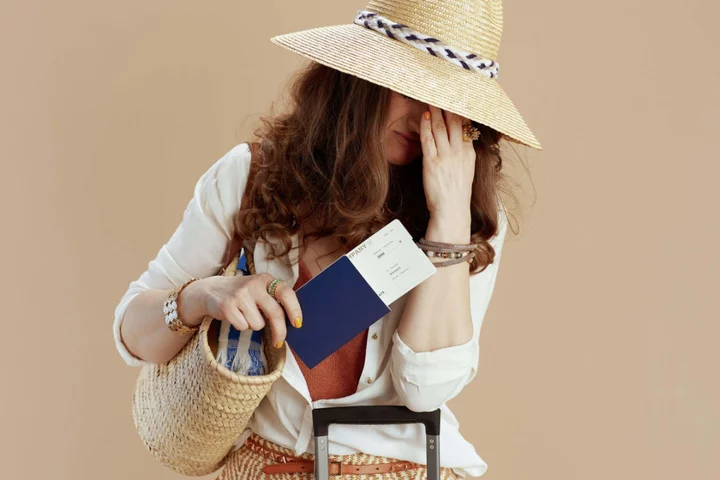
Why do I get sick when I go on holiday?
So you’ve been counting down to your holiday – when you’ll finally have the chance to step off the hamster wheel and relax. Except, no sooner have you checked in at your hotel than you find yourself reaching for the headache pills or tissues, as a niggling cold or migraine takes hold. Sound familiar? If it feels like you suddenly get unwell when you finally hit the pause button, you’re not imagining it – there’s even a medical term for it. The ‘let-down effect’ “This is known as the ‘let-down effect’,” says Dr Suhail Hussain, a personal physician and private home visiting GP. “When the body is used to functioning on high levels of [stress hormones] cortisol and adrenaline and they suddenly decrease, our immune system is exposed and then we’re prone to minor infections and excessive tiredness. “Pain and muscle aches also increase – adrenaline increases muscle tension, so imagine a rubber band always pulled tight, what happens when you let go? “There may also be a spike in mental health problems, such as acute anxiety and panic attacks. Flare-ups in pre-existing chronic conditions is also a common phenomenon, for example migraine and asthma attacks,” he adds. The ‘let-down effect’ can strike after a brief period of intense stress, such as after exams or completing a project, and after positive high-stress events, like planning a wedding. And for many people, it hits when you finally get to put down your to-do list and go on holiday. What’s the deal with stress hormones? Stress hormones serve an important purpose and we need them to function, so they’re not always bad news. “Basically, we are programmed to respond to danger – ‘fight or flight’ – so in stressful situations, there is an increase in levels of stress hormones adrenaline and cortisol,” Dr Hussain explains. “Together, these two hormones control mood, motivation and fear. In periods of stress or heightened anxiety, adrenaline levels rise – causing an overdrive of the sympathetic nervous system, resulting in racing pulse, high blood pressure, sweating, etc.” Stress hormones also play a role in regulating inflammation, metabolising nutrients, and aiding immune function, sleep and energy. But ideally, they wouldn’t stay at raised levels for too long. “If these hormones are always ‘on’, then inflammatory processes are accelerated and your immune system is impaired,” says Dr Hussain. “Consistently high levels of cortisol in your blood can lead to inflammation and a weakened immune system.” Can you avoid the ‘let-down effect’? Dr Hussain says: “You can try to lessen the impact of the ‘let-down effect’ by de-stressing slowly. Instead of crashing and burning, try to maintain a bit of activity on the holiday or some degree of exercise, such that there’s not a massive decrease in stress hormone levels, meaning you can allow the body to acclimatise slowly.” But not getting sick on holiday may not be the only concern here. If your body is giving you warning signs that chronic stress is taking a toll, it’s important to listen. “Constantly running on high levels of stress is very bad for you. It leads to the problems mentioned above but also longer-term consequences, such as plaque formation in arteries, leading to coronary events and strokes, depression and anxiety, and even addiction. Levels of obesity are also increased,” explains Dr Hussain. He says indications to look out for could include: “Recurrent illnesses, feeling tired, lack of energy. Poor response to glucose, leading to type 2 diabetes, elevated blood pressure and disruption of the sleep-wake cycle.” If you have any concerns, check in with your GP. And Dr Hussain suggests finding ways to make managing stress in everyday life. “Build in regular relaxation to your daily schedule. Get out to walk, spend time in the sun, observe nature. Listen to relaxing music. Make a regular sleep schedule, read, spend time with family and loved ones,” he says. “Don’t just work and work and work for the expectation of a big holiday at the end of it.” Read More Charity boss speaks out over ‘traumatic’ encounter with royal aide Ukraine war’s heaviest fight rages in east - follow live As Katie Boulter takes Wimbledon by storm, we look at her best on-court fashion so far Lioness Katie Zelem: Nerves are good – it’s just about channelling them the right way Church of England should scrap fees of up to £641 for weddings, vicar says
2023-07-07 15:24

'It's the last thing you need': Simon Pegg rules out Shaun of the Dead 2
Simon Pegg has insisted he won't ever make a sequel to 2004's 'Shaun of the Dead'.
2023-07-07 15:16

It's what George would have wanted: Andrw Ridgeley in talks for Wham! biopic
Andrew Ridgeley has had interest from several movie studios about making a Wham! biopic.
2023-07-07 14:26

Drake performs with hologram of his younger self
Rapper Drake left audience members at the opening night of his tour gasping by performing a stunt with a hologram of his younger self which appeared to hand him a book
2023-07-07 14:23

Taylor Swift: What Asian fans did for her concert tickets
Furious competition for Eras Tour seats will fulfil or crush fans' Wildest Dreams.
2023-07-07 13:58
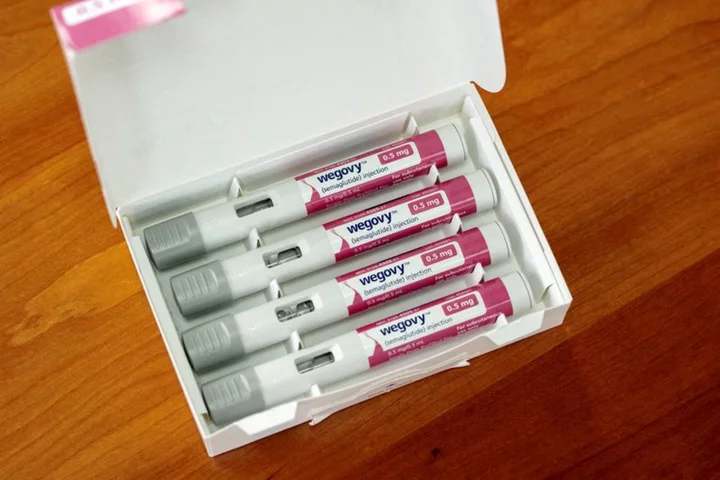
Biotech firms target weight-loss drugs without Wegovy's side-effects
By Maggie Fick LONDON Weight-loss drug Wegovy helped Rebecca Vogt achieve a major goal - shedding the weight
2023-07-07 13:22

Dozens injured after a double-decker bus and a city bus collide in Manhattan, officials say
A collision between a double-decker bus and a city bus in Manhattan on Thursday left dozens injured and at least 18 people requiring hospitalization for non-life-threatening injuries, according to the New York City Fire Department.
2023-07-07 10:59
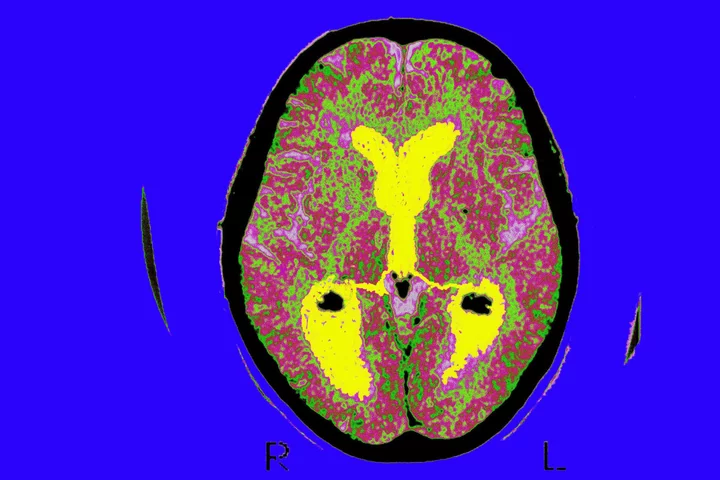
How a Japanese Drugmaker Clinched Win Over Alzheimer’s
(This story was originally published Sept. 29. On Thursday, the US Food and Drug Administration granted full approval
2023-07-07 08:46
